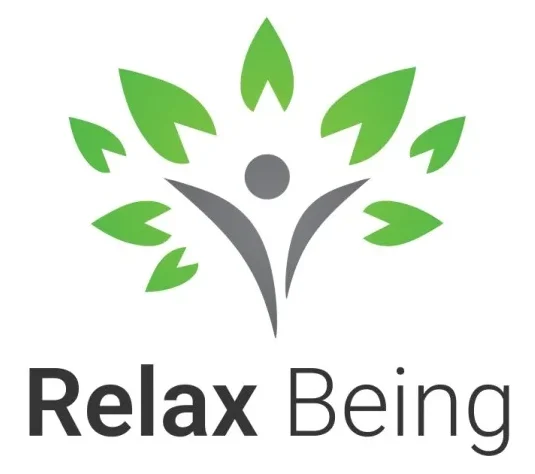
Morning Routines for Mental Health
Waking up and dedicating a few intentional hours to a morning routines can have a profound impact on mental health and overall well-being. By investing in daily practices that reduce stress and enhance focus, we create a sense of control and purpose, which is often neglected in our busy lives. Simple habits like mindful breathing, journaling, or gentle movement not only improve emotional resilience but also significantly boost productivity and happiness throughout the day. Personally, I’ve found that planning important aspects of my day in the morning makes me feel mindful, present, and ready to handle challenges with clarity, turning what could be a rushed start into a planned, empowering ritual.
Why Morning Routines Matter for Mental Health
That starting the Morning with intentional routines builds a strong foundation for emotional balance and cognitive strength. A structured routine of simple habits like stretching, journaling, or mindful breathing can help regulate stress hormones such as cortisol, keeping levels lower and creating space for higher dopamine, which improves motivation and mental clarity. Many studies show that when people commit to regular Morning Routines, the well-being benefits extend far beyond the morning, almost like investing in a ripple effect that carries into the entire day, allowing you to move with more focus, energy, and emotional steadiness.
- Reduce stress: Starting the day with intention prevents feelings of chaos and overwhelm.
- Boost productivity: Morning focus and clarity enhance decision-making and problem-solving.
- Enhance mood: Positive morning routines trigger endorphin release, reducing anxiety and depression.
- Improve sleep quality: Consistent wake-up times regulate circadian rhythms.
- Promote self-care: Morning routines give you time for reflection, mindfulness, and self-nurturing practices.
Practice Mindfulness and Meditation
Incorporating short Mindfulness practices into your morning routines can dramatically improve mental health. Setting aside just 5–15 minutes for quiet meditation became one of the most essential tools in my day, giving me a sense of balance before things got busy. These moments not only help me develop deeper self-awareness, but also enhance my ability for emotional regulation, which reduces stress and creates space for mental clarity. Over time, I’ve realized that such mindful habits are simple yet powerful ways to improve how we feel and function each day.
Ways to practice mindfulness:
- Breathing exercises: Focus on deep, slow breaths to center your mind.
- Guided meditation: Use apps like Calm, Headspace, or Insight Timer for structured meditation sessions.
- Gratitude journaling: Spend a few minutes reflecting on things you’re thankful for. This encourages a positive mindset and reduces negative thought patterns.
Scientific backing: Research indicates that regular meditation reduces the brain’s amygdala activity, which is associated with stress and anxiety. Over time, this practice strengthens your ability to respond calmly to challenging situations.
Hydrate Your Body First Thing
After 7–8 hours of sleep, your body is naturally dehydrated, which can affect mood, focus, and energy levels. Drinking water as part of your morning routines is a simple but powerful mental health practice.
Hydration tips:
- Keep a glass of water next to your bed.
- Add a slice of lemon or cucumber for taste and vitamin C.
- Avoid excessive caffeine before hydrating to prevent dehydration.
Impact on mental health: Dehydration can cause fatigue, irritability, and difficulty concentrating. Proper hydration improves brain function, supports emotional stability, and prepares your body for daily activities.
Engage in Physical Activity
Exercise is not just for physical fitness, it’s a mental health powerhouse. Incorporating physical movement into your morning routines releases endorphins, reduces stress hormones, and improves brain function. Even 10–30 minutes of movement can boost mood and focus.
Types of morning exercise:
- Yoga: Combines physical movement with breath control and mindfulness.
- Brisk walking or jogging: Boosts cardiovascular health and endorphin production.
- Stretching or bodyweight workouts: Improves flexibility and reduces tension.
Why it works: Exercise stimulates neurogenesis (the growth of new neurons) in the hippocampus, improving memory and mood regulation. It also provides a sense of accomplishment that carries through the day.
Eat a Nutritious Breakfast
Fueling your body with the right nutrients in the morning is essential for brain function and emotional stability. Including a healthy breakfast as part of your morning routines ensures steady energy, focus, and better mental clarity throughout the day.
Healthy breakfast tips:
- Include protein (eggs, Greek yogurt, nuts).
- Add fiber-rich foods (oatmeal, whole grains, fruits).
- Include healthy fats (avocado, seeds, nuts).
- Avoid processed sugars and refined carbs.
Mental health benefits: A balanced breakfast stabilizes blood sugar levels, preventing irritability and anxiety. It also enhances focus, energy, and cognitive performance.
Limit Technology Early
Avoid starting your day with emails or social media. Instead, let your morning routines focus on self-care, mindfulness, or goal-setting before digital distractions begin. Reducing early screen time helps lower anxiety and encourages calm, intentional thinking.
Strategies to reduce morning screen time:
- Delay phone use until after your morning routine.
- Avoid scrolling social media for at least 30–60 minutes after waking.
- Use the first hour of your day for self-care instead of notifications.
Benefits: Reducing early exposure to digital information can lower cortisol levels, decrease anxiety, and help you approach the day with calm focus.
Set Intentions and Goals
Setting clear intentions as part of your morning routines fosters purpose and motivation. Taking a few minutes in the morning to plan your day reduces stress and enhances motivation.
How to set intentions:
- Write down 3 achievable goals for the day.
- Visualize how you want the day to unfold.
- Reflect on how your actions align with your values and priorities.
Why it helps: Goal-setting activates the brain’s dopamine pathways, which improve focus, motivation, and resilience. It also creates a sense of accomplishment as you progress through the day.
Practice Self-Compassion and Positive Affirmations
Morning routines aren’t just about productivity, they’re about nurturing your mind. Practicing self-compassion and affirmations can strengthen self-esteem, reduce anxiety, and promote resilience.
Simple practices:
- Speak kindly to yourself; avoid negative self-talk.
- Use affirmations like “I am capable” or “I am enough.”
- Reflect on past successes to reinforce confidence.
Impact on mental health: Studies show that self-compassion reduces stress, depression, and burnout while increasing optimism and life satisfaction.
Incorporate Creative or Leisure Activities
Adding creative activities to your morning routines like journaling, music, or drawing stimulates the brain, improve mood, and encourage mindfulness.
Ideas for morning creativity:
- Journaling or writing thoughts and reflections.
- Drawing, painting, or sketching.
- Listening to uplifting music or podcasts.
Mental health benefits: Creative activities increase dopamine and reduce cortisol, promoting relaxation, emotional expression, and overall well-being.
Maintain a Clean and Organized Space
Your physical environment directly impacts your mental state. A cluttered or chaotic space can increase stress and mental fatigue.
Tips for an organized morning:
- Make your bed as soon as you wake up.
- Keep your morning area tidy and calming.
- Use minimalistic décor or natural light to create a serene environment.
Why it matters: A clean and organized space fosters a sense of control, reduces anxiety, and supports mindful practices in your morning routine.
Combine Practices Into a Personalized Routine
Every morning feels better when morning routines reflect personal needs and values. The key is finding small habits that bring mental clarity, support health, and create lasting benefits through consistency and mindful personalization.
Sample morning routine for mental health:
- Wake up at 6:30 AM
- Drink a glass of water
- 10 minutes of meditation or mindfulness
- 20 minutes of yoga or brisk walking
- Healthy breakfast with protein and fruits
- Journaling or intention-setting
- Avoid screens until work begins
- Positive affirmations and creative activity for 10 minutes
Adjust the timing and order based on what feels best for you
Overcoming Common Challenges
That creating a small morning habit, even with busy schedules, made a big difference in my mental health; it was challenging at first, but slowly I learned how to overcome daily obstacles.By adjusting my routine in simple ways, I discovered that what once felt like a burden became a steady path to balance and clarity.
- Lack of time: Start with 5–10 minutes of meditation or a short walk. Gradually increase duration.
- Difficulty waking up early: Adjust your bedtime gradually, reduce caffeine, and avoid screens before sleep.
- Motivation issues: Focus on small wins and celebrate consistency, not perfection.
Remember, the goal is progress, not perfection. Even small changes can produce significant mental health benefits over time.
Conclusion
That morning routines are more than habits; they are a cornerstone for strong mental health. By waking early and practicing mindfulness, I discovered how simply staying hydrated, exercising, and eating nutritious foods set a positive tone for the day. At first, I struggled with limiting technology and setting intentions, but with consistency and personalization, these small actions began to shape my mornings into something meaningful. The truth is, when you start small, you can experiment with different practices, and over time, you gradually build a routine that really supports emotional well-being.
I often remind myself that investing in mornings requires dedication, but the results can truly transform everyday life. A routine that feels natural becomes a source of productive, calm, fulfilling experiences rather than a checklist. The key is not to copy others but to create something that fits your lifestyle. With time, I realized that nurturing even the simplest actions like deep breathing or a mindful stretch helped me feel more present and resilient. That’s the power of shaping mornings intentionally: they don’t just prepare you for the hours ahead, they build a foundation for emotional strength throughout life.

